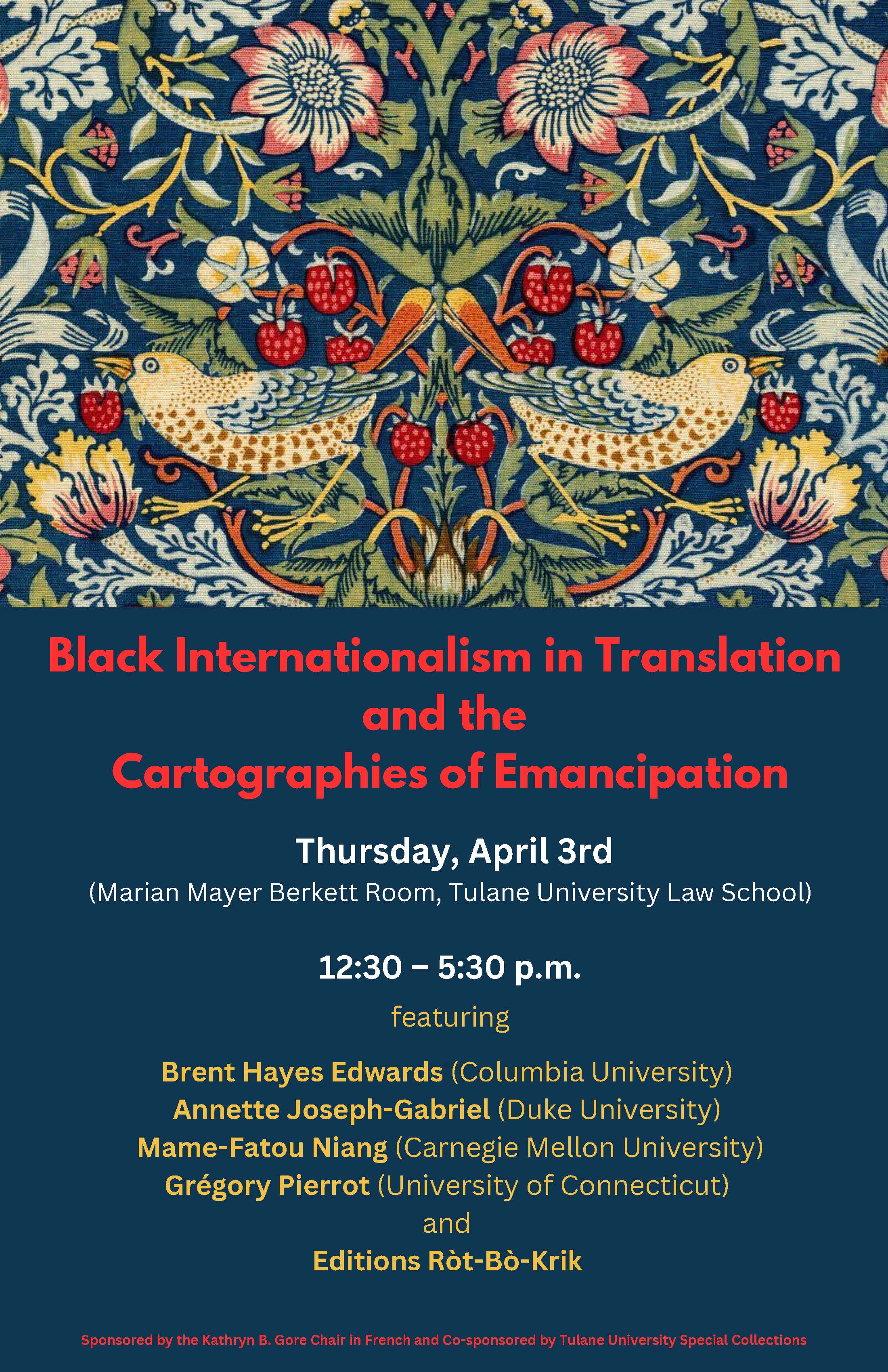
Program
12:30–1:00: Introduction
Opening Remarks: Brian T. Edwards, Dean of the School of Liberal Arts, Professor of English and Middle East & North African Studies
1:00–2:00: Session 1: The Stakes of Independent Publishing Editions Ròt-Bò-Krik and Tulane University Special Collections, moderated by Chelsea Stieber
In this first panel, Jean-Baptiste Naudy, editor at Editions Ròt-Bò-Krik, will introduce the origins of the press, its inspirations from both William Morris and French Guiana, its mission, its authors, and the broader independent publishing sphere in France. Next, representatives from Tulane University Special Collections will present objects from their holdings, including William Morris’s Kelmscott Press and their collection of independent presses from New Orleans.
2:00–2:30: Break
2:30–3:30: Session 2: Banjo, Tricontinental Drift(er) Brent Hayes Edwards, Jean-Baptiste Naudy, and Grégory Pierrot, moderated by Chelsea Stieber
This session will take the new French translation-in-progress of Claude McKay’s Banjo (1929) as the jumping off point for a broader conversation about translation. Edwards’s useful and oft-mentioned notion of décalage will be central to the discussion. As Naudy and Pierrot embark on their retranslation of Banjo, they discuss décalage, (dis)articulations, prosthetic props, gaps in time and space, and time, timelines, and timeliness in the work of translation.
3:30–4:00: Break
4:00–5:30: Session 3: Translation Time and Space Machine Brent Hayes Edwards, Annette Joseph-Gabriel, Jean-Baptiste Naudy, andMame-Fatou Niang, moderated by Grégory Pierrot
This roundtable will feature a wide-ranging discussion on Black internationalism in (French) translation and the cartographies of emancipation. Panelists will address topics including: Brent Hayes Edwards’s The Practice of Diaspora (2003) 20 years on, and in French translation; the translation of works by Edwards, Annette Joseph-Gabriel, and others in Ròt-Bò-Krik’s catalog, and what this means for Black Studies, Diaspora Studies, and studies of the Black International in France and the French-speaking world; elements of music and conjunction in Edwards’s assertion that “the cartography of decolonialism must be contrapuntal”; the practice of diaspora in the 19th century; and the French mediatic response to the (re)discovery of Black authors and their works.
5:30: Closing and Reception
